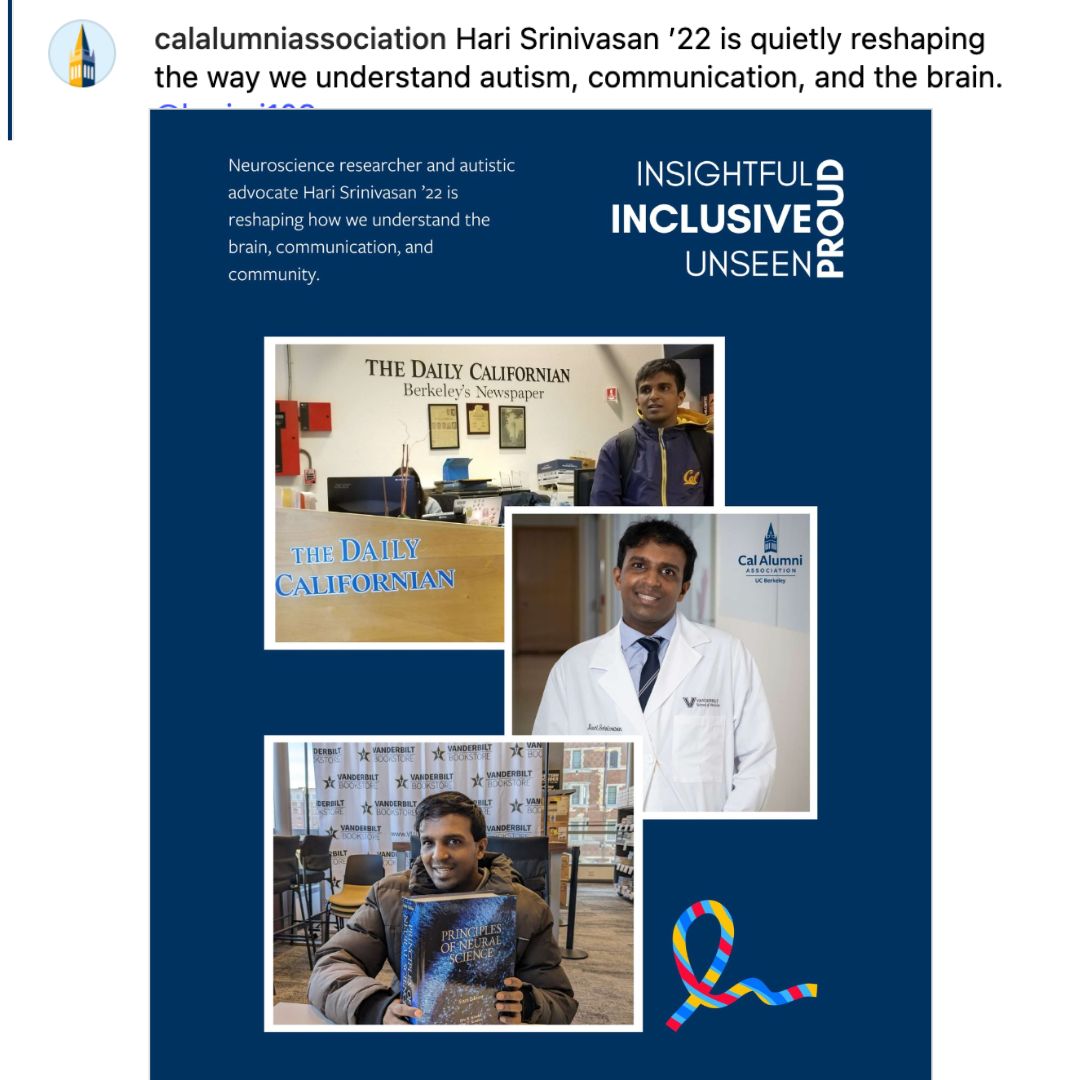At Berkeley, Hari became one of the first undergraduates with limited spoken language to teach a course on autism. He led student advocacy, wrote for The Daily Cal, and carried out research on awe and empathy as a Haas Scholar. His journey was never about being “inspirational.” It was about being seen as whole.
Now pursuing a PhD in neuroscience at Vanderbilt, Hari studies how autistic brains interact with the world. His research focuses on the invisible “bubble” of space around the body that helps us navigate movement and social cues. He is uncovering how that space works differently in autism, and how that knowledge can drive real-world solutions.
“I’m part of a community that is often left out of the conversation. We need both support for our challenges and opportunities to share our perspectives. Disability Pride is about making room for both.”
In Sept, Hari is co-leading the UNESCO-funded Amplifying Autistic Wellbeing event in London, bringing together high-support needs autistics from across the globe. https://amplifyingautisticwellbeing.com/
Every action, he says, is a pebble in the pond of change.





















